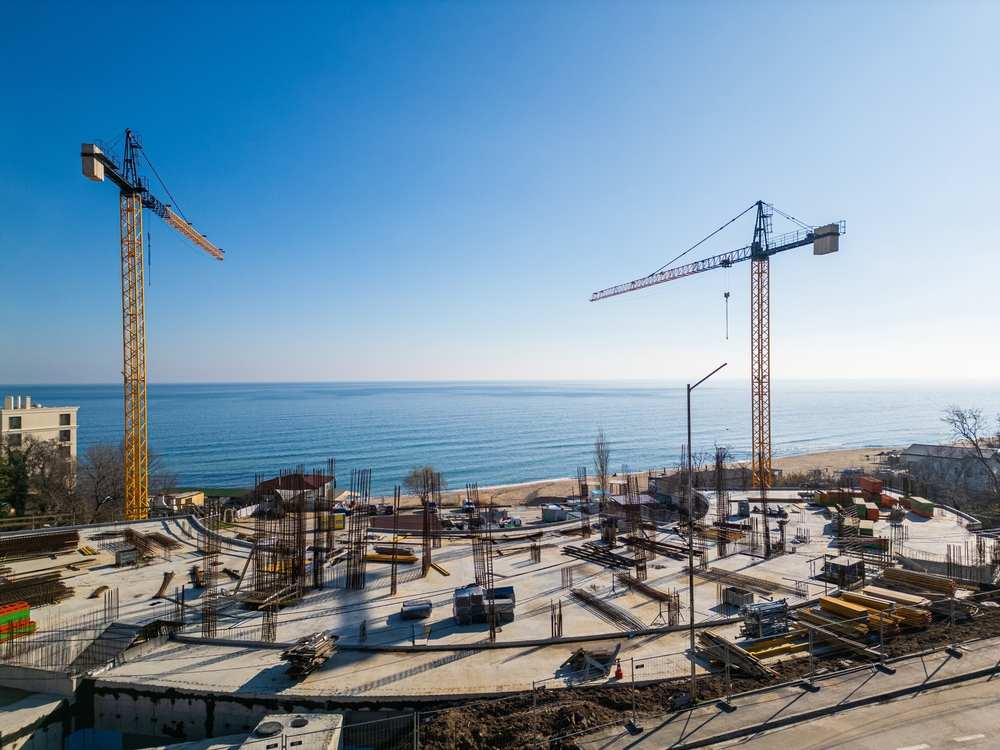As the construction industry continues to expand and technology evolves, one thing remains constant—the need for safety, skill, and compliance. In 2025, tower crane certification is no longer just a regulatory box to check; it’s an essential component of modern job site operations. With stricter safety standards, more complex machinery, and an increased focus on workforce accountability, certified operators are more important than ever.
Let’s take a closer look at why tower crane certification holds such weight in today’s construction world—and what it means for companies, crews, and project success.

The Growing Complexity of Modern Tower Cranes
Gone are the days when cranes were operated with simple controls and minimal automation. Today’s tower cranes are sophisticated pieces of engineering, equipped with advanced load monitoring systems, anti-collision technology, and precision controls.
This complexity demands more than just hands-on experience—it requires formal training and certification. Operators must understand not only how to maneuver a crane but also how to read load charts, evaluate environmental risks, and interpret digital diagnostics. Certification ensures that an operator has been trained in both technical knowledge and safe operational practices.
Without it, even a small mistake can lead to costly downtime, equipment damage, or—worst of all—serious injury.
Evolving Industry Regulations and Safety Standards
The Occupational Safety and Health Administration (OSHA) and other governing bodies have continually tightened safety regulations around crane operations. These updates require all crane operators on construction sites to be certified by an accredited testing organization.
In 2025, enforcement has become even more rigorous, and non-compliance can lead to significant penalties, project shutdowns, or loss of contract eligibility. For construction firms, maintaining a workforce of certified operators isn’t just smart—it’s required for survival in a competitive market.
Certified operators are also better equipped to identify hazards before they escalate. They understand rigging standards, load stability, and communication protocols—factors that directly influence safety on the job site.
Certification Boosts Job Site Efficiency and Productivity
Beyond safety, tower crane certification directly affects project efficiency. A certified operator is not only safer but also faster and more accurate. They can handle loads with precision, minimize setup errors, and reduce unnecessary downtime caused by equipment misuse.
Certified operators also tend to communicate better with ground crews and supervisors, ensuring that lifts are executed smoothly and without confusion. This increased efficiency translates into measurable cost savings for contractors and project managers.
In an industry where time truly is money, certification gives companies a competitive advantage.
Protecting Your Team, Equipment, and Reputation
A single crane-related accident can have devastating financial and reputational consequences. Insurance premiums can skyrocket, contracts can be lost, and rebuilding trust with clients takes time. Hiring or training certified crane operators dramatically reduces those risks.
When companies invest in tower crane certification for their teams, they’re investing in long-term stability. It shows clients, regulators, and workers that safety isn’t an afterthought—it’s a priority. Certified operators also bring a level of professionalism that enhances a company’s credibility and reliability in the eyes of project partners.
The Role of Training in Certification
Behind every certification is quality training—and that’s where the real foundation of safety and skill begins. Formal programs like Tower Crane Training provide operators with hands-on instruction, theoretical knowledge, and testing that ensures they’re fully prepared to handle real-world challenges.
Training covers topics such as:
- Understanding crane mechanics and controls
- Load chart interpretation and weight distribution
- Rigging techniques and communication protocols
- Safety inspections and maintenance practices
- Emergency procedures and hazard identification
Continuous training also helps operators stay up to date with evolving equipment technology and new regulatory standards. With cranes becoming more advanced each year, ongoing education is not optional—it’s essential.
How Certification Benefits Employers
For construction companies, having certified operators on staff offers several key advantages:
Legal Compliance – Avoid fines, violations, and legal complications by ensuring all operators meet certification requirements.
Lower Insurance Costs – Many insurers offer reduced premiums for companies that employ certified crane operators.
Improved Project Performance – Certified professionals work efficiently and safely, keeping projects on schedule and within budget.
Enhanced Reputation – Clients and contractors are more likely to trust companies that emphasize safety and professional training.
Reduced Equipment Damage – Certified operators understand proper crane handling, which minimizes wear, tear, and costly repairs.
Looking Ahead: The Future of Crane Certification
As construction technology continues to evolve, the role of certification will only grow. Automated systems, remote operation, and digital safety monitoring will redefine how cranes are used—but human expertise will always remain the key factor.
In 2025 and beyond, tower crane certification represents a commitment to professionalism, accountability, and innovation. Companies that embrace these standards are not only protecting their workers—they’re future-proofing their operations.
Final Thoughts
The importance of tower crane certification has never been clearer. It ensures safety, builds credibility, enhances productivity, and prepares operators for the increasingly technical demands of modern construction.
By investing in proper training and certification, construction companies are building more than structures—they’re building trust, efficiency, and long-term success. And with trusted programs like Tower Crane Training from Bronson Crane, operators can gain the skills and confidence to meet today’s challenges head-on.
